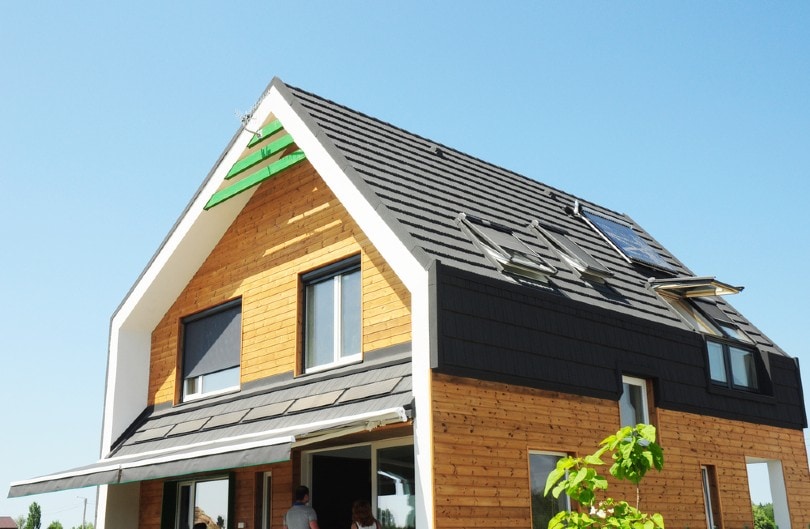Can I Build My Own House in Florida? Costs & Considerations
-
Ed Malaker
- Last updated:

Building your house can be a great way to reduce costs while acquiring the home that you have always wanted. However, each state has a unique set of guidelines in place regarding how you must construct a house and which licenses are required. Many people wonder if they can build their own house in Florida, and while the answer is yes, we recommend choosing a professional to do it. If you would like to learn all the facts before making a final decision, keep reading as we cover the laws, costs, and other considerations.
 Building a House in Florida
Building a House in Florida
Florida Policy
Florida policy requires that a licensed contractor perform all construction work. However, several exemptions apply, and Florida statute 489.103 outlines them, so it’s important to read this document carefully. Let’s take a closer look at a few of the things that it says:
- No license is required if you are doing federal or municipal work.
- You will not need a license if you do small repairs.
- An owner of a property can act as a contractor and build a single-family home, farm outbuilding, two-family residence, or even a commercial building if the cost does not exceed $75,000. However, you will need to apply for an exemption.

Applying for a License Exemption
If you want to be exempt from needing a contractor’s license to build your home, you must sign the building permit application in person. You must also prove that you completely understand the owner’s obligations under the law. Here are a few of the things that you must know:
- You must understand that state law requires a licensed contractor to do any construction, but you can apply to be exempt from the law.
- You do not need to sign building permits unless you are responsible for the construction. If you hire a licensed contractor, they will assume responsibility and sign the required documents.
- You can protect yourself from financial risks by hiring a licensed contractor.
- You understand that the exemption is only for one- and two-family homes, outbuildings, and commercial buildings costing less than $75,000.
- The building must be for personal use, and you cannot sell or lease it within 1 year of construction.
- You must be on site for the entire construction, providing direct supervision.
- You cannot hire an unlicensed contractor to build or supervise, and you are responsible for ensuring that all licensing is current.
- You are liable for any injuries that might occur to you or any employees during construction. Your homeowner’s insurance may not cover these injuries, and you will need to sign a form confirming that you are aware of the insurance limitations.
- Any unlicensed workers must be under your direct supervision, and you need to employ them. As an employer, you will need to follow the Federal Insurance Contributions Act, which means you must withhold income tax, contribute to social security, and provide worker compensation.
- You agree that you are legally and financially responsible for constructing your home. You know and will follow all building codes, laws, ordinances, and zoning regulations.
- You will also need to demonstrate that you have a good moral character with good credit, and you will need to pass a test on the technical aspects of construction. The test will also contain questions on laws and business practices.
Are There Any Reasons That I Shouldn’t Build My Home?
Unfortunately, there are several reasons that you might want to consider hiring a licensed contractor to do the work for you. The biggest reason is that you are financially responsible for any injuries that might occur. Even if your home insurance covers an accident, assuming liability is extremely risky.
Another problem is that it’s unlikely that you will have the same knowledge as a licensing contractor. DIY builders also often lack the skills to estimate the cost of building and materials, which increases the risk of going over the $75,000 limit. They also usually lack the experience required to coordinate a project, manage several people, and fully understand the laws that can affect the project.
Summary
We recommend taking a few extra days to consider alternatives to building your own home. Finding other people who attempted a building project and asking about their experience can be helpful. Read over the laws of Florida policy and the Federal Insurance Contributions Act to ensure that you understand everything and can comply. If these issues don’t bother you, applying for a permit is not difficult, and you can build your dream home in Florida.
Featured Image Credit: Pixabay
Contents
 Building a House in Florida
Building a House in Florida